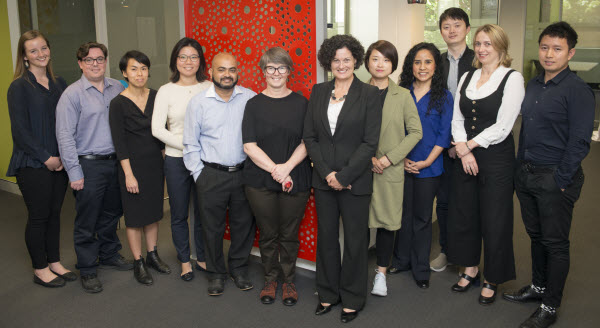Finding funding for NFPs and charities

Funding for not-for-profits (NFPs) and charities is often a standalone strategic tactic to manage an organisation’s ongoing operating costs.
The approach needs to shift to integrating fundraising into the annual business plan to find funding for charities and NFPs and sustain it.

Building the business plan
To ensure your success over a financial year, it is vital to take a step back and strategically analyse the wins and losses of the previous year. Considerations around fundraising targets, activities and their return on effort (RoE), financial implications, accounting and compliance requirements, resource demands, planning and timeframes should form part of this evaluation process.
While business planning is common to all types and sizes of organisations, fundraising strategy is an art and science of its own that is particular to not-for-profits. Suppose your organisation is new to fundraising or you aren’t at the scale – that makes a specialist a practical option for you.
In that case, there are resources available to help you with fundraising strategy, including how-to tips from Philanthropy Australia, professional development resources from the Fundraising Institute of Australia, grant seeker training from Strategic Grants and this blog from Wendy Brooks & Partners.
By undertaking this necessary planning step, NFPs and charities can identify areas where they could be exposed. They can also look at ways to streamline processes, identify systems and automation tools to improve efficiencies and better plan their fundraising initiatives with specific business objectives in mind.

Partnerships
In Australia, we are fortunate to have so many organisations that want to see community initiatives flourish. Many resources offer directories of approved government grants and funding programs that align with your NFP’s community objectives. Clearly expressing your objectives, visions and track record will help your application stand out in a competitive funding environment.
At True Accounting, we know NFP accounting and most of our clients need to fundraise, so we have built a solid understanding of fund finding across the country.
Here is a list of our top 10 fund-finding favourites:
- Philanthropy Australia
- Funding Institute Australia
- NSW Government
- Business Victoria
- QLD Government
- NSW Government Tenders
- AusTender
- GrantConnect
- Pro Bono Australia
- GEMS grants portal
In addition to our top ten, most states and territories have community funds that distribute a proportion of gaming revenues back to the community. You can find them here at the Australasian Gaming Council. Application processes will vary by fund.

Prioritise projects and evaluate them
In any NFP, resources are precious, so allocate them to projects delivering the most significant return on investment and maximum return on effort. From a growth and sustainability perspective, partnerships and outreach initiatives that deliberately respond to a community need are crucial. It is also essential to be driven by your mission and business plan when seeking grants, sponsorship or fundraising – don’t chase a grant because it is there. Make sure that the funding opportunities further your objectives and strategy.
A constant evaluation mindset must also lead the fund-finding efforts. Effective not-for-profit grant proposals need to highlight accountability and how and why a particular project or initiative is necessary to attract donors and to motivate their sustained support.
Consistent evaluation also helps quickly identify problem areas and adequately allocate resources, so you’re constantly aware of the impact you’re making on or through a community. This self-audit approach will keep donors informed.

Manage your not-for-profit fundraising with specialist accounting
Finding funding is not a ‘one and done’ exercise for NFPs and will be an ongoing process during the life of the NFP’s operations. Most grants and even some donations require a level of acquittal or reporting back to the funder or donor.
To ensure you can achieve these compliance obligations as efficiently as possible, you must structure your accounting data in a way that makes it easy to understand. You need to clearly define how you are spending against those income streams and easily extract the information when it comes time to report.
This level of detailed administration, including the meticulous management of finances and accounting, needs expert partners who understand the sector and its stakeholder expectations.

Finding funding as an NFP vs a charity
Your business and tax status can influence the types of funding you have access to and the strategies that will be most effective for your organisation. For example, some government funding may only be available to not-for-profit entities. Public appeal style fundraising is often most effective for Deductible Gift Recipient (DGR) charities that can offer a tax deduction to their donors. So if you are just starting your revenue-raising journey, knowing where you sit in this funding landscape is essential.
Based on the definitions by the ATO, charities differ from NFPs due to their organisational objectives and charitable purpose. Charities operate as NFPs but have some additional critera:
- Working for people affected by poverty, sickness or are elderly
- Promoting education or religion
- Working to benefit the community in another way.
Examples of charities are public benevolent institutions (PBIs) like not-for-profit aged care facilities or disability services, health promotion charities (HPCs) like human disease research centres or health and wellness institutions dedicated to a specific health cause, or ‘other charities’ like animal welfare or environmental protection groups.
At True Accounting, we deliver expert accounting services to NFP clients, so contact us for information about what we do and how we can assist you.
